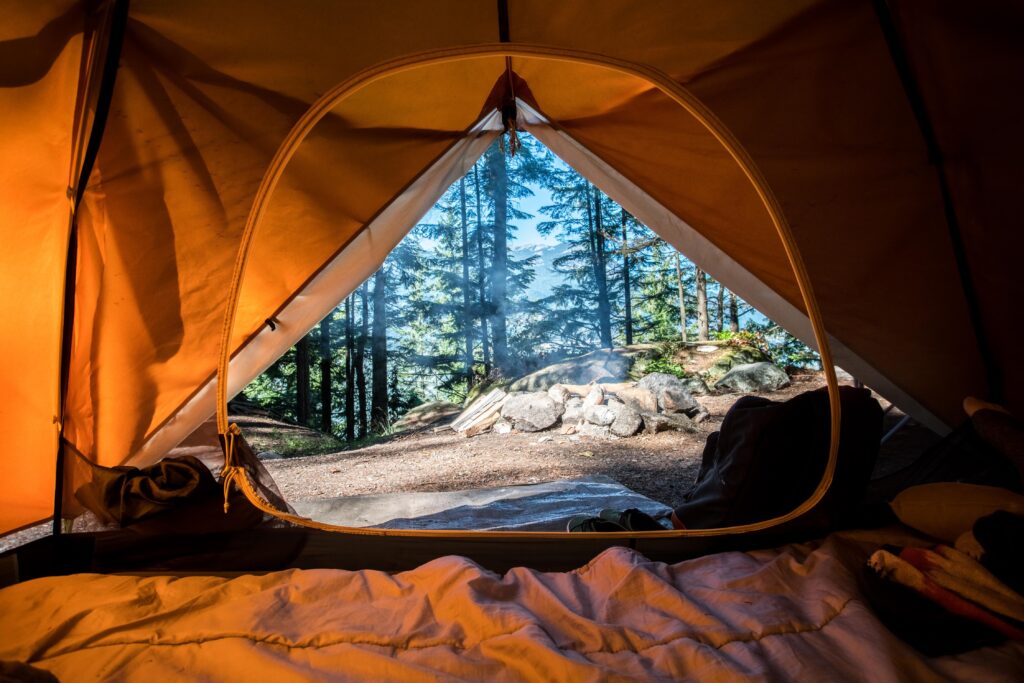
Who hasn't dreamed of escaping the hustle and bustle of everyday life and venturing into nature? Camping is a great way to disconnect from urban worries and connect with the tranquil beauty of the natural world. However, many people hesitate to take the first step due to fears that camping might be expensive or unsafe. In this article, we'll share 6 valuable tips on how to camp safely and cheaply, so you can finally break out of your routine and embrace the outdoors.
1. Choose Affordable and Free Camping Sites
One of the biggest myths about camping is that you have to spend a lot of money on expensive campsites. The reality is that there are countless free or paid camping options. low cost. Research state parks, conservation areas, and national forests near you. Many offer free or affordable camping. Choosing these locations saves money and allows you to enjoy the natural beauty.
2. Invest in Quality, Yet Affordable Equipment
While some camping gear can be expensive, it's possible to find good-quality options at affordable prices. Before you buy, make a list of what you really need, such as a waterproof tent, sleeping bag, and stove. Look for brands that offer durable products at lower prices. Also, consider renting or borrowing gear from friends to save even more.
Choosing the right gear is essential to ensuring a safe and comfortable camping experience. Many people believe that quality gear is always expensive, but it's possible to find options that offer good performance without breaking the bank. Here are some types of gear to consider and how to choose. economic options:
a. Tent: Your tent is your primary shelter while camping. Choose a waterproof tent to protect yourself from unexpected rain. Check the tent's seams and material to ensure it's durable. Many brands offer affordable models that meet these requirements without compromising quality.
b. Sleeping Bag: Choosing the right sleeping bag depends on the expected weather conditions. For summer camping, a lightweight sleeping bag is sufficient. In colder climates, invest in a sleeping bag suitable for low temperatures. Secondhand gear stores can be a great option for finding quality sleeping bags at affordable prices.
c. Stove and Kitchen Utensils: Having a portable stove is useful for cooking hot meals. Look for simple, compact models. As for cookware, choose lightweight, durable options, such as stainless steel pots and pans.
d. Backpack: If you plan on hiking or camping, a comfortable backpack is essential. There are budget-friendly backpacks with adequate compartments and good storage capacity. Make sure you choose a size that fits your needs.
e. Flashlight or Headlamp: Having a light source is important for nighttime safety. LED flashlights are economical and energy-efficient. Headlamps are practical, allowing you to keep your hands free while lighting the way.
f. Thermal Insulation: Thermal insulation helps retain body heat and provides a more comfortable night's sleep. Opt for thinner, lighter options if you're on a budget.
g. Appropriate Clothing: Weather-appropriate clothing is essential. Look for secondhand or discounted clothing to save money. Remember to wear layers to adapt to changing temperatures.
h. Navigation and Communication Equipment: Depending on your campsite, a GPS or smartphone with navigation apps may be helpful. Make sure your devices are charged and bring a solar charger to keep your battery charged.
i. Insect Repellent and Sunscreen: These items are essential for safety and comfort while camping. Look for affordable options in travel-sized sizes.
When looking for quality gear, don't hesitate to ask other experienced campers for recommendations and check online reviews. Remember that even on a limited budget, it's possible to find reliable gear that meets your needs and ensures a safe and enjoyable camping experience.

3. Plan Your Meals in Advance
Eating out while camping can quickly become expensive. Instead, plan your meals in advance and bring non-perishable foods like canned goods, instant noodles, and granola bars. You can also try simple recipes that can be prepared over a campfire or in a portable stove. Remember to bring enough drinking water or a water filter to ensure you have access to clean water during your trip.
When it comes to safe and affordable camping, food plays a key role. Planning your meals in advance not only saves money but also ensures you have enough energy to enjoy your outdoor adventures. Let's break down some food options and tips to make your experience gastronomic experience in the most pleasant campsite:
a. Non-Perishable Foods: One of the most effective ways to save money is to bring non-perishable foods. This includes canned goods like beans, soup, and tuna, which have a long shelf life and are easy to transport. Additionally, foods like instant noodles, oatmeal, and rice are lightweight and won't take up much space in your backpack.
b. Cereal and Dried Fruit Bars: Cereal and dried fruit bars are excellent options for quick and nutritious snacks. They provide instant energy and are conveniently packaged. Be sure to store them in a waterproof container to prevent them from getting damp.
c. Preparing Food on a Fire or Stove: If you prefer warmer meals, you can prepare food directly over a campfire or on a portable stove. Bring pots, pans, and lightweight cooking utensils, along with ingredients like meat, vegetables, and spices. Dishes like stews, kebabs, and kabobs are delicious and can be cooked outdoors.
d. Ready Meal Packaging: Some brands offer freeze-dried or dehydrated meals designed specifically for outdoor activitiesJust add hot water and wait a few minutes for a hot, delicious meal. While these options may be a bit more expensive, they're extremely convenient and have great nutritional value.
e. Drinks and Hydration: Don't forget to bring beverages like water, tea, or instant coffee. Hydration is crucial, especially outdoors. Make sure you have a reliable source of drinking water or a water filter to purify water from natural sources.
f. Avoid Disposable Packaging: An important tip for safe camping is to avoid disposable packaging. Use reusable containers to store food and liquids. Besides being more environmentally friendly, they also prevent wild animals from approaching your campsite, attracted by the smell of food.
Remember to consider the number of days of your trip when planning The amount of food you need to bring. Consider factors such as the weather, the intensity of the activities, and your group's dietary preferences. With proper planning, you can enjoy delicious, affordable, and safe meals during your camping adventure, ensuring you're energized for all the outdoor activities you have planned.

4. Be Prepared for Weather Conditions
Safety is a priority when camping. Before you set off, check the weather forecast and be prepared for the weather conditions. This includes adequate clothing to protect against cold, heat, or rain. Having a first aid kit on hand is also essential for dealing with minor injuries. Be aware of local conditions, such as the presence of wild animals, and take appropriate measures to avoid unwanted encounters.
5. Practice “Leave No Trace”
The "Leave No Trace" principle is essential for preserving the environment while camping. This means you should leave your campsite exactly as you found it, without leaving any trash, damaging vegetation, or disturbing wildlife. Respect nature and follow local conservation guidelines to ensure future generations can enjoy these natural spaces.
6. Share the Experience with Friends
Besides saving money, sharing the camping experience with friends can make the trip even safer and more fun. Having company increases safety, helps distribute tasks, and allows everyone to share in the joy of outdoor adventure.
In short, camping doesn't have to be expensive or risky. With careful planning, smart choices, and respect for nature, you can enjoy memorable camping experiences safely and affordably. Break out of your routine, explore the natural world and discover the joy of living outdoors. Enjoy every moment and create memories that will last a lifetime.
Lucas Wanderlust has a tireless spirit of adventure, always seeking new travel experiences. Fascinated by the world and the possibility of exploring unknown destinations, he fell in love with the sense of freedom and self-discovery that traveling alone provides. With a backpack on his back and a heart open to the unknown, Lucas embarks on exciting journeys, where each destination becomes a unique chapter in his life story. He gives himself body and soul to the magic of solo travel, inspiring others to follow in his footsteps and discover themselves through adventure.







